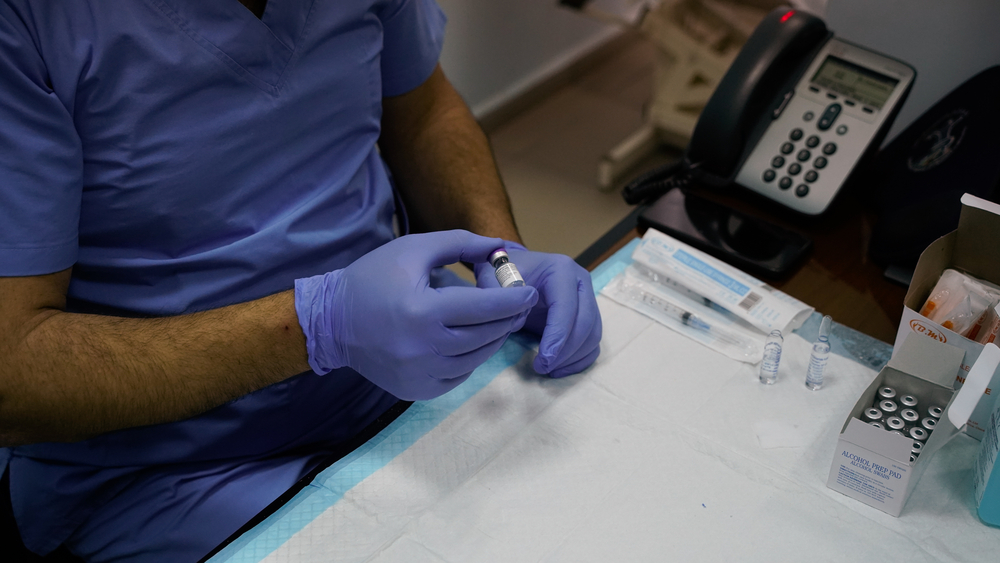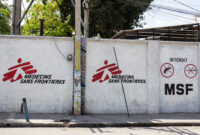An Open Letter to the Leaders of Canada’s Federal Parties
As Canadians prepare to vote in this year’s federal election, I am writing on behalf of Doctors Without Borders/Médecins Sans Frontières (MSF) to remind you that, upon taking office, Canada’s next government will need to respond immediately to a wide range of global emergencies, including disease epidemics, natural disasters, armed conflicts, and the humanitarian impacts of climate change. As one of Canada’s – and the world’s – leading independent emergency humanitarian medical organizations, MSF will continue to insist that Canada lives up to its international humanitarian obligations and will urge the next government to uphold Canada’s long history of principled leadership in response to global crises.
The COVID-19 pandemic has shown that Canada cannot be complacent when it comes to global public health and ensuring that patients and health systems around the world have access to the medicines and the vaccines that they need. Throughout the pandemic, governments – including Canada’s – invested billions of dollars into the research and development of the COVID-19 vaccines that are in use today. Yet, today, the world is confronted with an inexcusable, deep global inequity in the international response to COVID-19, with people in lower-income countries still largely cut off from the world’s limited supply of vaccines. Governments had the opportunity to demand fair, affordable, global access to COVID-19 vaccines from the pharmaceutical companies who now control access to them – but they didn’t do so.
This is simply bad policy, and bad public health — but it is also not a problem isolated to COVID-19. For decades, MSF’s medical staff have witnessed people being denied treatment for deadly diseases because the medicines they need have been priced out of reach by profit-seeking pharmaceutical corporations, even when those medicines were discovered using public money, including medicines like insulin that have been discovered in Canada.
Canada needs to demand fairer, faster and more affordable global access to new medicines and vaccines from the global pharmaceutical industry, but must also do more to make this a reality. In the short term, this means that Canada needs to continue to share more of our own vast COVID-19 vaccine surplus with people around the world who remain unprotected from the virus. Canada’s next federal government must take steps to promote an increase in the global supply of COVID-19 vaccines, including by supporting a proposal at the World Trade Organization to temporarily waive intellectual property rights on COVID-19 vaccines, therapeutics and diagnostics until the pandemic comes to an end.
In the longer-term, Canadian innovation policy needs to learn from the mistakes of the COVID-19 pandemic and end the cycle of investing public funds in the development of medicines that are then priced out of reach of patients who need them, or vaccines that are abandoned and never developed in the first place. As Canada looks to revitalize its biomanufacturing industry coming out of the COVID-19 pandemic, it is essential that any investments are made be aligned with global public health priorities and are conditional on patients around the world – including in Canada – having affordable, timely access to the medicines and vaccines that Canadians are paying to help produce. MSF teams have supported the use of the Canadian-discovered rVSV-ZEBOV Ebola vaccine and are closely tracking the development of other Canadian-discovered vaccines against other public health threats such as Lassa fever, Marburg virus disease and others. To truly ensure Canadian health R&D and innovation positively impacts patients, we need better access-oriented policies. Canadians should rightly expect publicly funded medical R&D to be used for public health, not private profits.
That’s why MSF launched a petition last year calling on Canada’s government to take the simple step of adding accessibility and affordability conditions to its medical R&D funding agreements, to ensure fair, affordable global access to medicines, vaccines and other health technologies developed with Canadian public funds. Signed by 91,206 Canadians, it was delivered to Canada’s Minister of Health in October 2020.
Now, nearly one year later, it is time to turn this ask into action. Every day that passes without Canada’s government prioritizing this small and straightforward change to its R&D funding policy is another day of Canada continuing to place the profits of pharmaceutical companies ahead of its accountability to Canadians — and the health of people around the world.
Since the last federal election in 2019, the global COVID-19 pandemic has revealed the extent to which Canada, and the whole world, depends on medical research and development to provide the innovations necessary to respond to public health emergencies and save lives. It also revealed the extent to which for-profit companies in that sector are willing to place their own financial interests ahead of global public health needs and people’s lives.
I would like to take this opportunity to remind all parties participating in Canada’s federal election that this country’s next government can make profound changes to this narrative, by taking immediate steps toward a more equitable global pharmaceutical system and demanding a public return on public investments into medical R&D.
Yours sincerely,
Joseph Belliveau,
Executive Director,
Doctors Without Borders/Médecins Sans Frontières Canada












